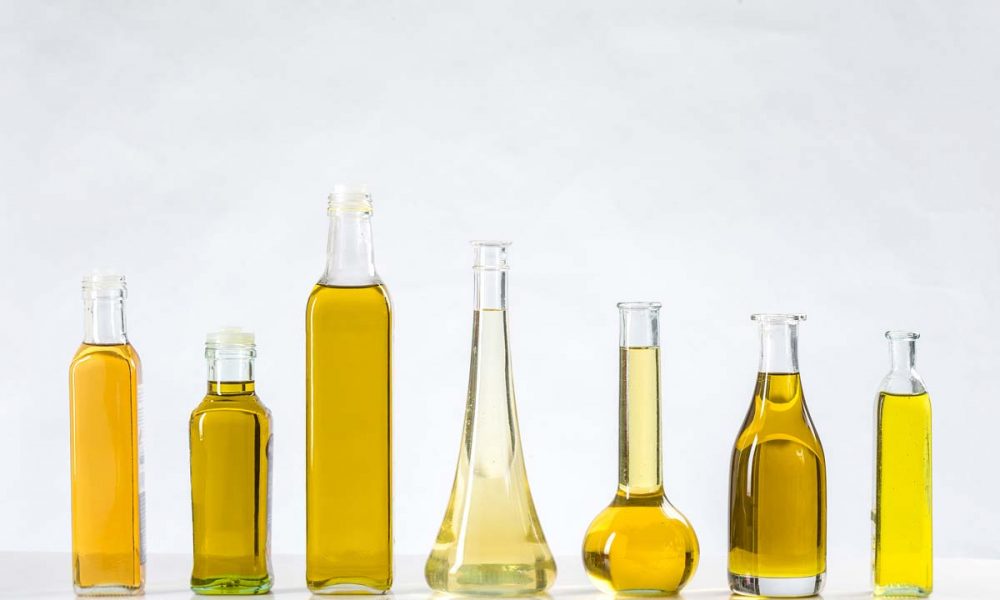Many of today’s most popular oils are not as natural as you think
You want the best for your family. So, you’re teaching the kids how to select produce at the local farmer’s market and look for sustainability labels on seafood. Now that you have the main ingredients for your meals, do you know which cooking oils are Earth friendly? New oils have been showing up on your grocer’s shelves and with good reason. Some, such as buttery Malaysian sustainable palm oil, are better for your health and the environment than the everyday cooking oil you’re used to buying. Others, such as macadamia nut oil, offer a flavorful and nutritious way to switch up a salad.
Three things to consider:
Is the oil GMO? Today, more than 90 percent of soybean, corn and canola (rapeseed) crops come from genetically modified seed. This is a significant increase from just 20 years ago.
Does it turn toxic when heated? You might be surprised to learn that both olive oil and coconut oil break down when exposed to high temperatures. They start to smoke and degrade into harmful chemicals, called aldehydes, which may damage essential organs, tissues and cells. Even the fumes from overheating some cooking oils may have serious health consequences.
Is it responsibly grown? Some oil crops may be harming Mother Earth. With our booming world’s population – now nearly 7.5 billion people – we need a sustainable source of this dietary staple. Some experts point to oil-producing perennials, such as oil palms, olive trees and grape vines, to help feed the world without harming the planet.
Some pros and cons for the cooking oils now commonly found on store shelves
Olive oil
Pros: Rich in mono-unsaturated fat, this oil is great for your heart and skin health. Use it for salad dressings and drizzling over breads.
Cons: Not suitable for high-temperature applications because it starts to degrade before it hits 400 degrees Fahrenheit. High demand has also led to soil erosion in some areas of Europe.
Butter
Pros: Flavorful and easily accessible, butter is fine to use in moderation for adding flavor to veggies or potatoes
Cons: The nutritional value of butter varies. Grass-fed butter is higher in omega-3s and vitamins A, K, D and E. But most of the butter in stores is produced with milk from grain-fed cows.
Malaysian palm oil
Pros: This flavor-neutral tropical oil with a buttery texture is a popular replacement for harmful trans fat. It is non-GMO and tolerates heat extremely well. Approximately 80 percent of palm oil imported into the U.S. is from Malaysia, where it is certified sustainable, produced from high-yielding perennial crops. An acre of oil palm produces 11 times more oil than soybean plants and seven times more than canola.
Cons: While Malaysian sustainable palm oil is an ingredient in many foods, country of origin is not always listed on the label.
Coconut oil
Pros: Coconut oil’s medium chain fatty acids (also found in grass-fed butter and palm oil) are easily utilized as body fuel, which may help you manage your weight.
Cons: The yield from coconut trees declines as they age, which may lead to more deforestation. Coconut oil starts to break down at 350 degrees Fahrenheit, limiting its use.
Avocado oil
Pros: This flavor-neutral oil is rich in nutrients and tolerates heat up to 480 degrees Fahrenheit.
Cons: Our avocado obsession may be causing serious harm to the drinking water in Chile. The trees demand a lot of water, a resource which is in short supply in this drought-prone country.
Macadamia nut oil
Pros: Although most commonly used as a beauty aid, this sweet and buttery oil is good for your health, too. It contains a 1:1 ratio of omega-3 to omega-6 fatty acids.
Cons: Macadamia trees are susceptible to many pests and diseases. In some cases, rats consume up to fifty percent of the crop.
Flaxseed oil
Pros: This oil is extremely nutritious and rich in heart-healthy omega-3s.
Cons: Many people find its flavor unappealing. Flaxseed oil also begins breaking down at just 225 degrees, so it can’t be exposed to heat. Also known as linseed oil, it’s commonly used in paints and wood finishes.
Sunflower oil
Pros: Sunflower oil is rich in skin-, brain- and heart-healthy vitamin E tocotrienols.
Cons: It contains inflammatory compounds which may increase your risk of heart disease. Because it is a lower-yielding plant susceptible to diseases, it requires significant herbicide and insecticide use.





No comments